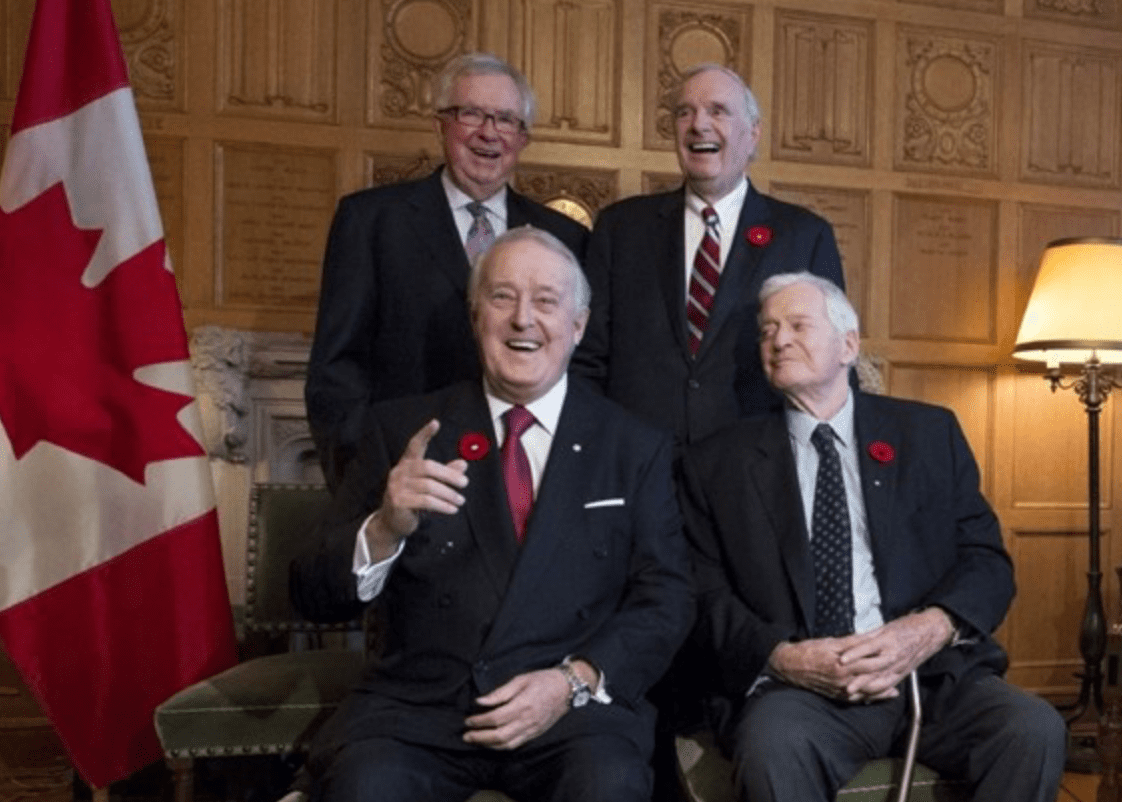Early last month, news broke that former Prime Minister Joe Clark would be among the delegation assisting the Trudeau government in its efforts to secure Canada a spot on the UN Security Council.
It didn't garner much media commentary.
Neither did the subsequent announcement that another former PM, Jean Chretien, would represent Canada at the recent UN General Assembly.
Perhaps that's to be expected, what with the electorate's attention fastened upon the ongoing federal election campaign.
Nonetheless though, the return of both former prime ministers represents an important development within Canadian politics, and one Justin Trudeau can take credit for helping establish.
After all, it is not just Joe Clark and Jean Chretien who have been recruited.
In 2016, Kim Campbell, was brought in to chair the new Supreme Court advisory board. And during the perilous and taut negotiations over NAFTA, Brian Mulroney admirably offered up his trade knowledge and advice on dealing with the mercurial Donald Trump; much to the great relief of Justin Trudeau.
Recruiting these former PMs, three of which are Progressive Conservatives, has been both effective and wise.
And it's a practice that should continue, irrespective of which party succeeds in forming government in the coming weeks.
For starters, there are now seven living former prime ministers more than ever in Canadian history. Besides those mentioned above, the list includes the Right Honorable John Turner, Paul Martin and Stephen Harper.
These former Heads of Government offer a range of knowledge from their time in office that is to the benefit of any political leader willing to listen; especially when the country is contending with several pressing issues of national importance.
For instance, the past few years have witnessed a noticeable rise in nativist, anti-immigrant, anti-refugee sentiment.
When it comes to fostering acceptance of refugees in Canada, why not engage with Joe Clark over the issue? What with his experience, successfully resettling thousands of Vietnamese "boat people", there are few others better qualified than he.
Speaking of qualified, why not consider reaching out to Paul Martin when it comes to addressing indigenous inequalities? His dedication to reconciliation post-politics makes him an enviable source of wisdom on the issue.
Or for democratic reform, why not corroborate with long term parliamentarian John Turner?
Or, in the case of a future economic recession, who better to consult with than the man who governed through one, Stephen Harper?
Of course, sometimes former prime ministers really are best left on the sidelines.
Jean Chretien made that much clear this summer, after his foolish musings over the extradition of Meng Wanzhou. Thankfully, the rumors that Chretien would be sent to China as part of a delegation to free the two detained Canadians, Michael Kovrig and Michael Spavor, have all but been extinguished.
Still, it's important to remember that all former prime ministers are far too useful to be sent out to political pasture. Or to be merely used as a Liberal or Conservative campaign prop.
Besides, the current troupe of federal party leaders could use all the policy advice they can get.
Justin Trudeau, Andrew Scheer and Jagmeet Singh are all some of the youngest leaders heading a political party in Canadian history.
Despite his four years as Prime Minister, Justin Trudeau is a mere 47 years old. And Andrew Scheer and Jagmeet Singh are even younger, both at 40 years of age, respectively.
And it is not just age either.
Neither Jagmeet Singh nor Elizabeth May have sat in a federal cabinet. And while Andrew Scheer has served as Speaker of the House, he too is green around the ears when it comes to managerial government experience.
Heck, judging by the lengthy list of mistakes made by Justin Trudeau over the past few years, he too could benefit from some more council from his political elders.
Finally, it is not just political leaders, but Canadian democracy itself, which can benefit from such multi-partisan cooperation.
Just the sight of former prime ministers aiding their successors, regardless of political stripes, will help to reduce the rising tide of hyper-partisanship that slowly corrodes away at our country's democratic institutions.
Regardless of which party leader forms government on October 21, let's hope a consensus remains over the Trudeau government's efforts to engage with former prime ministers.
After all, such a consensus really is to the benefit of our democracy.
Photo Credit: Hamilton Spectator








